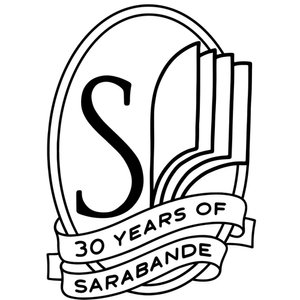
Mare Nostrum, Khaled Mattawa
“On the bridges to those slippery worlds, we are wrapped in gold foil, disease free. Who is saving whom? The question’s not stated, only implied.”
In 2013, the Italian government implemented Mare Nostrum, an operation intended to limit immigration from Africa and the Middle East to European countries. For the refugees, the journeys were harrowing, often ending in shipwrecks or imprisonment, and the arrivals were wracked with uncertainty.
Here, the poet Khaled Mattawa conjures a pointed, incantatory account of the refugee experience in the Mediterranean. In reclaiming the operation's name Mare Nostrum (our sea in Latin), he renders us culpable for the losses, and responsible to those risking their lives in pursuit of hope and respite from oppression. The voices are many, and the lyrics ritualistic, as if Mattawa has stirred ghosts from the wreckage. Part narrative, part blessing, this chapbook begs of its readers: Do you remember? Mattawa’s writing is a lighthouse for politics of the twenty-first century, and this chapbook a stunning memorial.

Additional Info
Khaled Mattawa currently teaches in the graduate creative writing program at the University of Michigan. He is the author of four books of poetry, and a critical study of the Palestinian poet Mahmoud Darwish. Mattawa has coedited two anthologies of Arab American literature and translated many volumes of contemporary Arabic poetry. His awards include the Academy of American Poets Fellowship prize, the PEN Award for Poetry in Translation, and a MacArthur Fellowship.
PRAISE FOR MARE NOSTRUM:
"Mare Nostrum...draws parallels between [Mattawa's] focus on the migration crisis in the Arab world and his interest in environmental degradation, raising awareness of the negative effect of politics and economics on the environment."
—Arab World English Journal, online and print
"This is a path to compassion without arrogance and mystery without indifference."
—World Literature Today
"There would be easy ways to categorize this book and the poems in it. We could try 'political poetry' or 'the poetry of witness.' Those are fine, of course, but it is more than enough to simply think of these poems as memorable reminders of the horrors that we allow to stay on the periphery of our experience. Mattawa does not let us forget."
—Keith Taylor, The Rupture
"[A] writer at his most humane."
—Spencer Hupp, The Sewanee Review
“Stunning new collection."
—The National (AE)
PAST PRAISE FOR WORK BY KHALED MATTAWA
"Through his critical essays, his poetry, and his translations, Mattawa serves as a mediator between Arab and American culture and highlights the invaluable role of literary translations”
"[A] writer at his most humane."
—Spencer Hupp, The Sewanee Review
“Stunning new collection."
—The National (AE)
PAST PRAISE FOR WORK BY KHALED MATTAWA
"Through his critical essays, his poetry, and his translations, Mattawa serves as a mediator between Arab and American culture and highlights the invaluable role of literary translations”
"[A] writer at his most humane."
—Spencer Hupp, The Sewanee Review
“Stunning new collection."
—The National (AE)
PAST PRAISE FOR WORK BY KHALED MATTAWA
"Through his critical essays, his poetry, and his translations, Mattawa serves as a mediator between Arab and American culture and highlights the invaluable role of literary translations”
"[A] writer at his most humane."
—Spencer Hupp, The Sewanee Review
“Stunning new collection."
—The National (AE)
PAST PRAISE FOR WORK BY KHALED MATTAWA
"Through his critical essays, his poetry, and his translations, Mattawa serves as a mediator between Arab and American culture and highlights the invaluable role of literary translations”
"[A] writer at his most humane."
—Spencer Hupp, The Sewanee Review
“Stunning new collection."
—The National (AE)
PAST PRAISE FOR WORK BY KHALED MATTAWA
"Through his critical essays, his poetry, and his translations, Mattawa serves as a mediator between Arab and American culture and highlights the invaluable role of literary translations”
"[A] writer at his most humane."
—Spencer Hupp, The Sewanee Review
“Stunning new collection."
—The National (AE)
PAST PRAISE FOR WORK BY KHALED MATTAWA
"Through his critical essays, his poetry, and his translations, Mattawa serves as a mediator between Arab and American culture and highlights the invaluable role of literary translations”
"[A] writer at his most humane."
—Spencer Hupp, The Sewanee Review
“Stunning new collection."
—The National (AE)
PAST PRAISE FOR WORK BY KHALED MATTAWA
"Through his critical essays, his poetry, and his translations, Mattawa serves as a mediator between Arab and American culture and highlights the invaluable role of literary translations”
"[A] writer at his most humane."
—Spencer Hupp, The Sewanee Review
“Stunning new collection."
—The National (AE)
PAST PRAISE FOR WORK BY KHALED MATTAWA
"Through his critical essays, his poetry, and his translations, Mattawa serves as a mediator between Arab and American culture and highlights the invaluable role of literary translations in bridging cultural divides."
—MacArthur Foundation
"With its alluring rhythms, its sweeping energy and incantations, Zodiac of Echoes is a remarkable marriage between politics and lyric intensity."
—The Missouri Review
